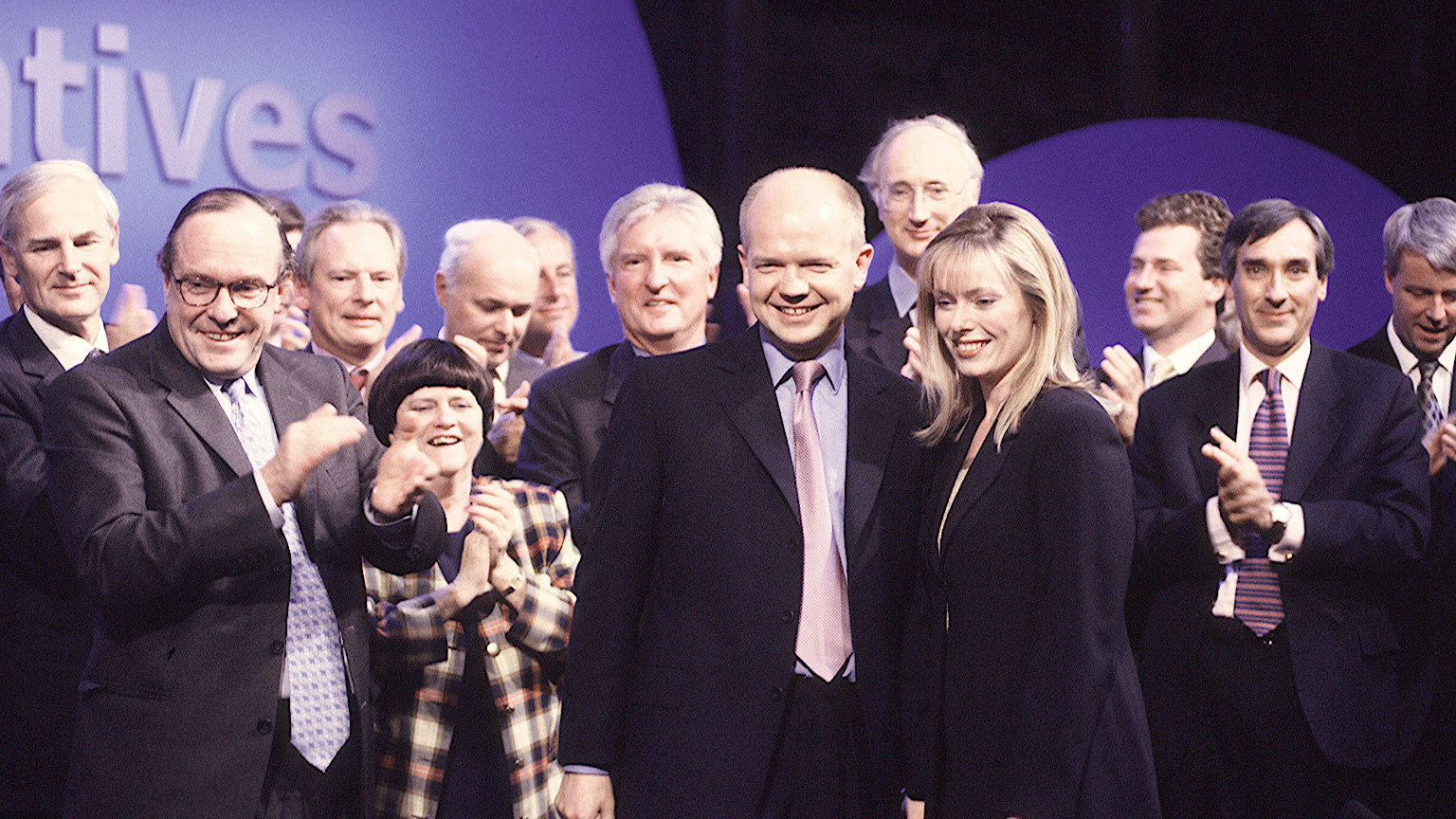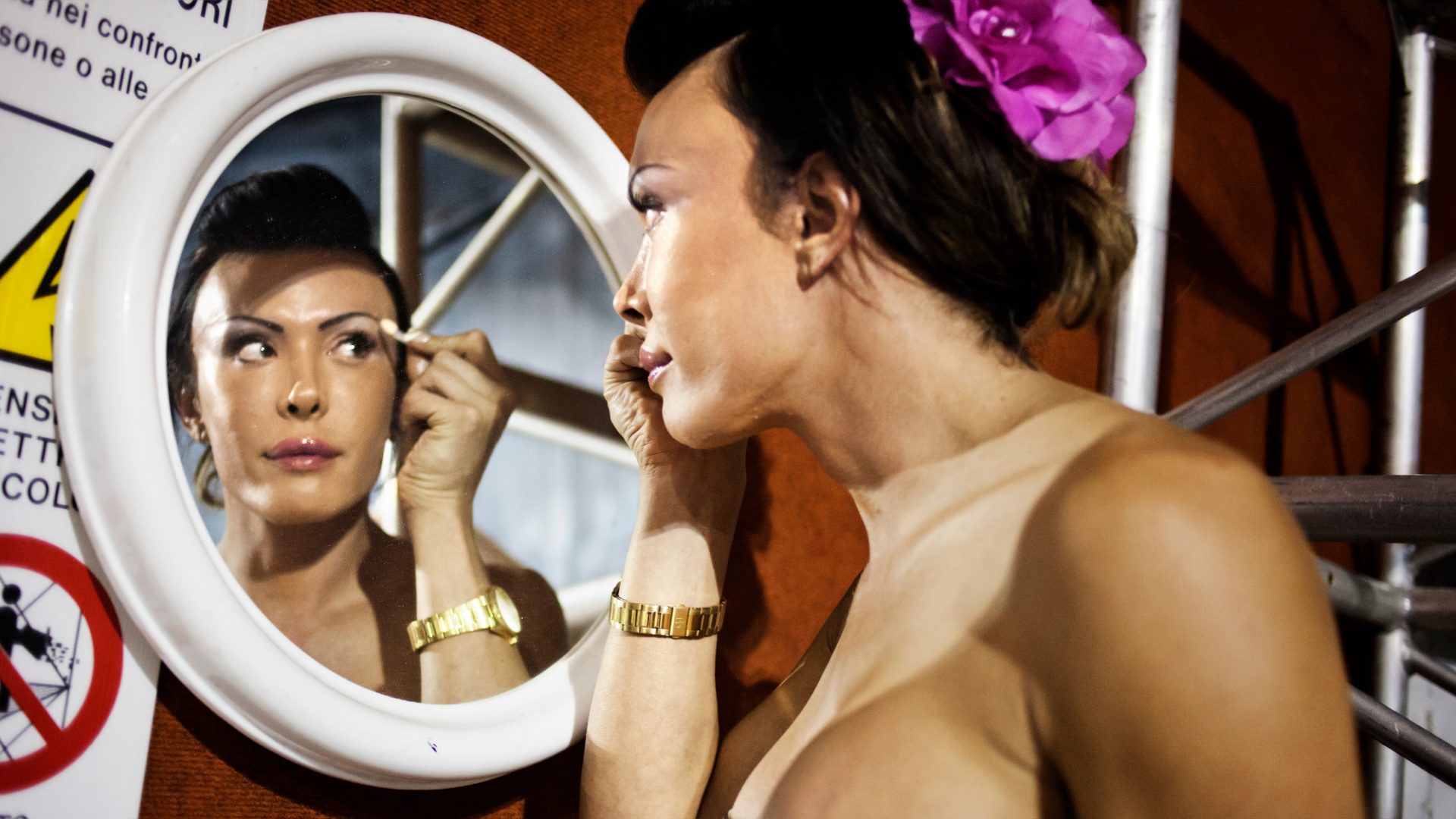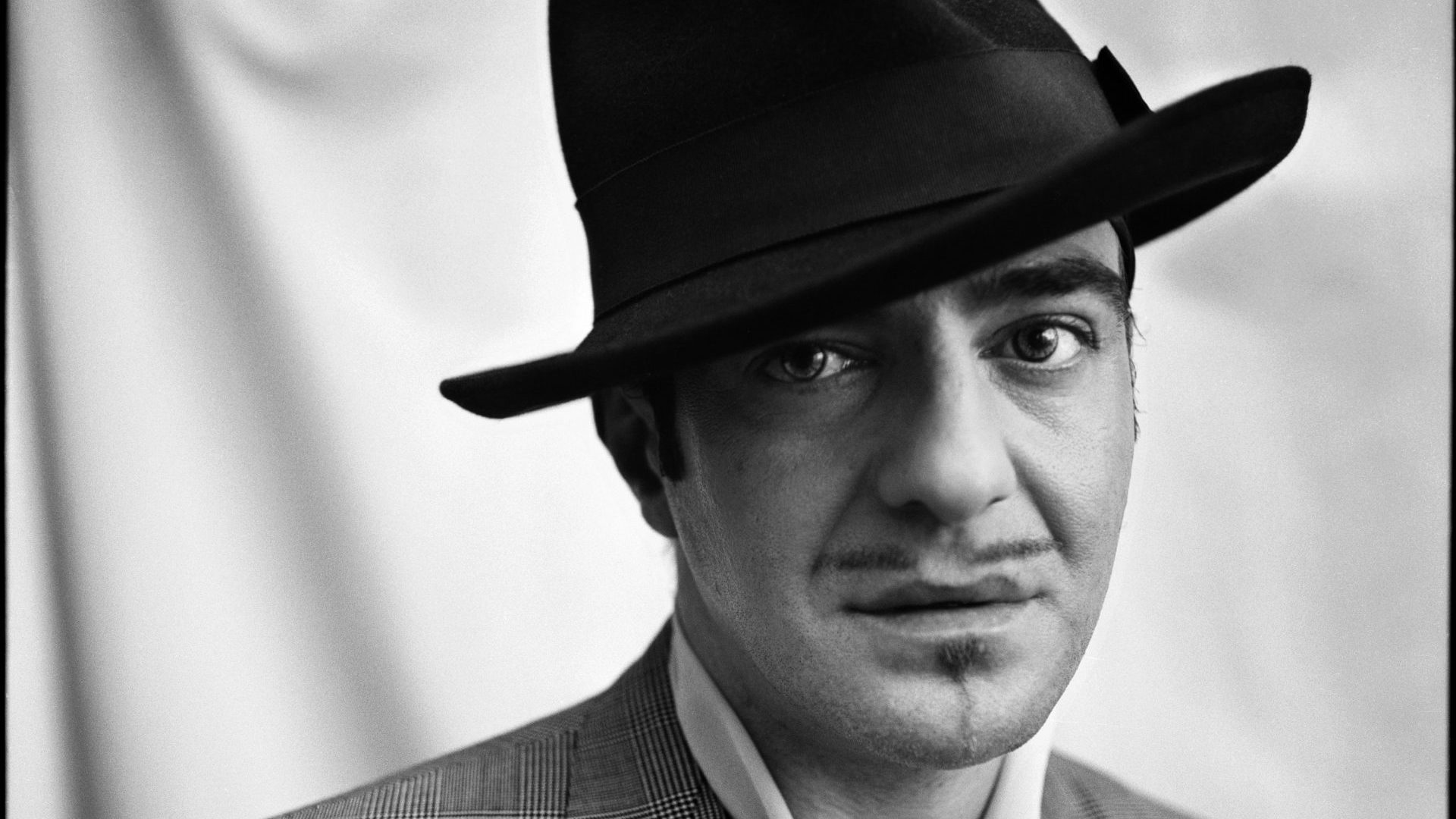As an MP and minister, I kept diaries every day I was in the Commons. Jottings in a notebook and then dictation in the evening and weekend. All contemporaneous, no later massaging or editing.
I parked them after leaving the Commons in 2012, but with Labour likely to form a government in 2024 I thought it would be interesting, maybe instructive, for a new generation of Labour MPs and ministers to read what it was like last time around.
One surprise was the extent to which, by 1997, William Hague was already leading the Tory Party into a full-on anti-European position, breaking with 50 years of Tory support for partnership in Europe, from Winston Churchill to Margaret Thatcher.
The assumption is often made that leaving the EU only became a serious project with the arrival of Nigel Farage in the European Parliament and as a permanent guest on BBC TV’s Question Time. Yet as these extracts show, long before Farage surfaced the Tories were being taken to the edge of an anti-European cliff from which, in due course, they fell on to the rocks of Brexit isolationism.
May 14, 1998
In the evening to a dinner organised by Carla Powell (wife of former Thatcher/Major private secretary Charles Powell) whose salon has been the most famous in Conservative circles for years. The event is to launch a book by Rodney Leach (businessman and future Tory peer) on Europe. It is in a posh hotel in Knightsbridge and bit by bit a coven on Europhobes assembles.
There is Paul Johnson (Telegraph/Spectator journalist) with his watery eyes and his once flame-red hair turning white. Then there is (former Times editor) William Rees-Mogg still passionate in his hatred of all things European. Then the divine apparition comes in. Margaret Thatcher came through a side entrance in a fluorescent light-blue dress, walking very slowly and sedately like an ageing goddess amongst her former serviteurs.
Rodney Leach makes a very tedious speech attacking Europe for its social policies, its federal inclinations and all the usual rant of the Europhobes.
May 15, 1998
To Flemings, the bank in the middle of the City where David Marsh (financial specialist) has organised a lunch for Josef Joffe, the editor of the Süddeutsche Zeitung who does comment pieces all over the place for English journals.
There was an offensive sneering question from a tall youth in granny spectacles with a large double-breasted jacket dating from the 1950s, who I realised was Jacob Rees-Mogg, son of the Europhobe William and ex Tory candidate. He sneered about the three federalists and talked about losing sovereignty.
A bit later on I was able to say I wasn’t a federalist and that what we were doing in Europe was something quite new and the notion that any MP controlled interest rates, or indeed that any minister did was silly. I won the argument I think.
January 14, 1999
The Liberal Democrats have called a debate on Europe. It is fairly pointless, exposing as usual the division of the Tory front bench. David Heathcoat-Amory (then shadow chief secretary to the Treasury) made it quite clear he wanted nothing to do with the euro or Europe of any sort, a point reinforced by John Bercow (then a Tory rising star), who seems to swallow an anti-European pill each morning.
June 8, 1999
I went to the House for (prime minister Tony) Blair’s statement on the European Council meeting in Cologne last week. On Europe, Tony again got passionate and warned (then-Tory leader) William Hague that his anti-European politics might bring him short-term tactical advantage but were going to do damage in the medium and long term.
June 15, 1999
Bill Cash (Tory MP) is in a triumphalist mode declaring that the new shadow cabinet, which contains out-and-out anti-Europeans like Bernard Jenkin and Iain Duncan Smith, is “Eurosceptic”. He is immensely satisfied and smug and says Hague has to break with the European People’s Party (the federation of centre-right parties to which the Tories were affiliated) at once and go for a full renegotiation of all the treaties.
Thus, Hague, in pandering to his Europhobe MPs, has created a monster that drives the party further and further to a populist nationalist position. Then, even more amazingly, Cash announces that he is seeing Hague this afternoon to tell him all this.
June 16, 1999
In the Strangers’ Bar I have a chat with Ian McCartney (then a trade minister), who has been appointed head of a special inquiry team into why we did so badly in the European election. I give him my thesis that we should park the euro question for a bit but at the same time get out and engage more solidly on European issues with the public.
I told him: After 1992 Labour had an extremely clear and unambiguous position on Europe – we were in favour of a full engagement in the EU. In contrast the Tories spent the whole time sitting on a fence worried about their Europhobes and giving no clear message to the public. Now William Hague has a very clear position – he is against Europe. We mustn’t make the mistake of looking for a fence to sit on as the public always punishes waverers and fence-sitters.
His hooded eyes blinked in acknowledgement but I don’t know how much of my message was getting across. You can almost feel the palpable desire of so many MPs for an end to the European debate. They simply want it to go away and never come back. If only it were that easy.
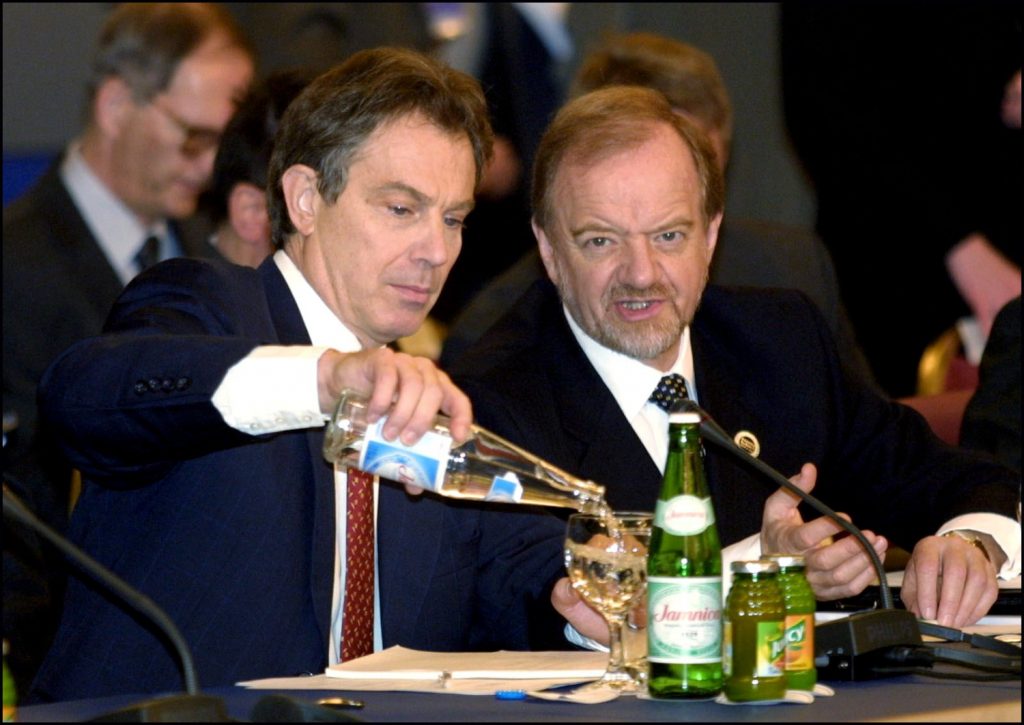
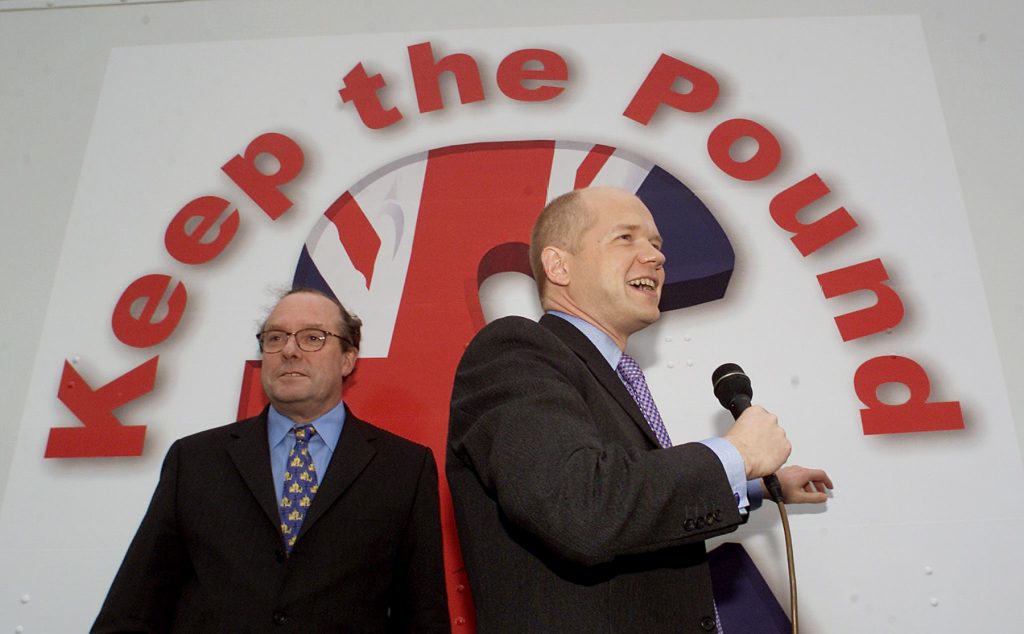
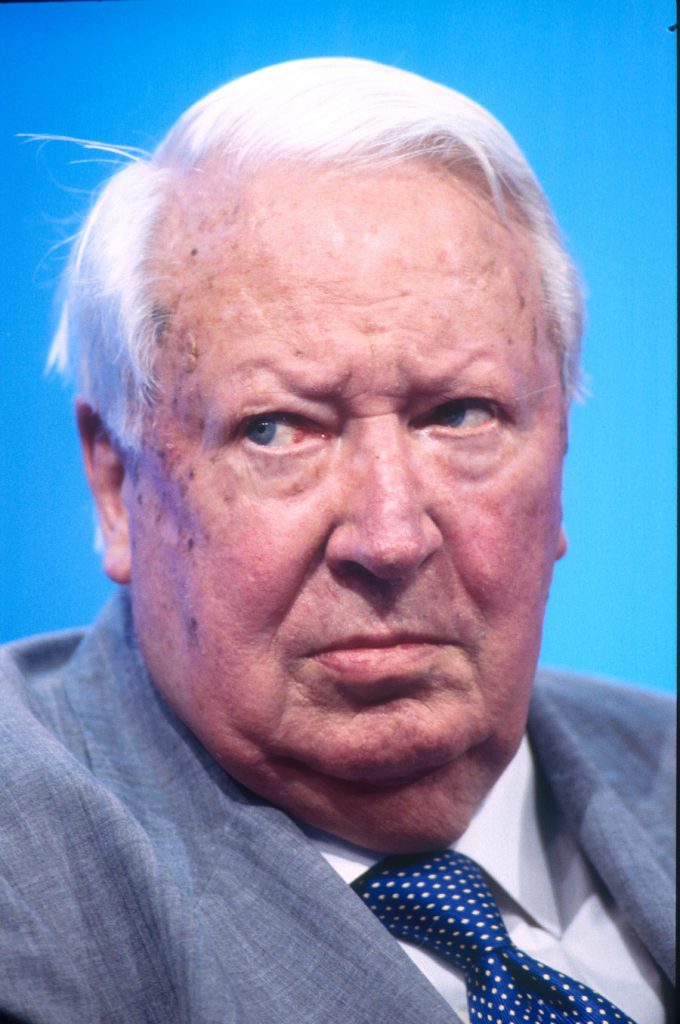
March 24, 2000
To Keble College for the Konigswinter British-German political weekend. (Former chancellor) Ken Clarke complained about Blair’s lack of leadership on the euro.
Ken really has a bloody cheek as his economic stewardship and failure to stand up to the anti-Europeans has left us with a culture of such relentless hostility on European issues that is difficult to move.
May 3, 2000
PMQs was notable for the strength of the attack by (then-Lib Dem leader) Charlie Kennedy on Hague. He called him a bigot more or less to his face.
I wish to God Blair had had the same courage. But the focus groups sit on his shoulder like a raven, telling him not to join in this condemnation.
May 16, 2000
I came across a marvellous quote from Lord Salisbury in 1886 explaining why the Irish cannot have Home Rule. “When you narrow it down, you will find that this which is called self-government but which is really government by the majority, works admirably well when it is confided to people who are of Teutonic race. But it does not work well when people of other races are called upon to join it.”
You couldn’t have made it up and it is just so redolent of the approach to Europe from today’s successors to Lord Salisbury who run the Conservative Party.
June 12, 2000
On the way to the House, I pop into the New Statesman at Victoria to deliver an article to its editor, Peter Wilby, about how the Conservatives are now becoming much more like a standard right wing European party. Wilby has made the Staggers almost unreadable and has no interest in the politics of Europe so I don’t know why I bother.
September 1, 2000
Up early to rewrite an article for the Observer. This argues that Britain is a country where peoples and races and faiths all co-mingle and we are much better and stronger as a result.
But the old Powellite racism based on colour is morphing into a xenophobic dislike of Europeans. When the Berlin Wall came down we dropped all visa requirements on east Europeans. Rotherham is full of Poles and Lithuanians. And since we don’t have ID cards, we don’t know who is in Britain.
As the son of a Pole, I can’t object, but the Tories and xenophobic parties like Ukip are making latter-day European racism into a big political theme.
July 24, 2000
Lunch with Andrew Gimson. He was the Daily Telegraph’s correspondent in Berlin and is now back freelancing for the Spectator and Evening Standard. He is hostile to the euro single currency, and basically to the idea of greater partnership, power-sharing and participating in the European Union.
Trying to get a Tory Europhobe to let go of this article of faith is like hoping to convert a Wee Free to Catholicism.
October 2, 2000
I write a piece on Paul Sykes, the South Yorkshire property developer who is offering £20m to the Conservative Party if they will come out against Europe. I am trying to stir a little, but as usual get the snobby frosty indifference from newspaper comment editors.
October 9, 2000
I bump into Andy Marr (then political editor of BBC News) on the Tube who says that Hague is much more fanatically right wing – anti-abortion, pro-capital punishment and even pro-birching – than people realise. Hague is completely with Anne Widdecombe in her ludicrous lurch to the right.
October 16, 2000
The day was devoted to the six-monthly debate on Europe before the EU Council. It was a collector’s item.
Ken Clarke made a speech comprehensively trashing the hysterical opposition of the Conservatives to the European Rapid Reaction Force. This in real terms is quite a modest military proposal that leaves Nato firmly in the driving seat. But the anti-European press has gone bananas on it, saying that it is a European army that will undermine Nato and destroy the Atlantic Alliance. Complete tosh, and Clarke without being insulting or being aggressive demolished the position of William Hague. A parliamentary tour de force.
Then it was the turn of Sir Peter Emery. He has been an MP for 41 years. A knight of the Devon shires, he lamented that the Conservative Party of Churchill and Harold Macmillan, whom he quoted effectively about the need to pool sovereignty, had disappeared, to be replaced by the present anti-European mob.
December 5, 2000
I had lunch with Tom Baldwin of the Times and the Guardian’s Patrick Wintour at St James Hotel. We were joined by Bob Seely, who is the media and special adviser to Francis Maude, the shadow foreign secretary.
Maude is becoming a chirping cricket on Europe and as a result is taken less and less seriously. The bottom line is that the Tory position of saying “No” to everything from Europe is faintly ridiculous.
Seely is really nice and intelligent to talk to. I expect I would like Maude too. He seems decent, thoughtful and with a great political pedigree. Why on earth are they in such a cul-de-sac of politics? William Hague’s decision to turn the Tories into an anti-European party, as he has no idea otherwise how to lay a finger on Blair, will damage UK politics.
December 11, 2000
Blair and (Robin) Cook return triumphantly to the Commons from the EU Nice summit. As Blair gets up to speak, Cook (then foreign secretary) never stops chattering into his ear as Hague makes a bigger and bigger hash of his reply.
Were I Blair, I would be irritated. But Cook is too good and professional to be disposed of. Hague is, well, there is only one word – pathetic.
On his best terrain – in front of the dispatch box – and on his best issue, Europe, he should at least have landed a blow. But he is shrill, he makes no jokes, he goes on and on about qualified majority voting, which means nothing to anybody, and he has no positive image to offer.
Blair, by contrast, is passionate. He lays into Hague. He asks him if he wants a referendum on whether the pensions of the officials of the Court of Auditors should be decided by qualified majority voting or not. It is a debating point but then the House of Commons is about debates, and Hague shrinks into a horrible hole as if he wished he could go away.
It is not a nice sight to see such a ruthless crushing of an opposition. But Hague and the anti-Europeans he now allows to run the Conservative Party deserve everything they get. Will it make them think again? I doubt it.
January 18, 2001
Blair has made clear that there will be no possibility of replacing the pound with the euro without that being approved in a referendum. I have spent four years at the FCO and never once heard Robin, or any FCO minister or official or anyone in Downing Street who shapes EU policy ever mention holding a referendum.
Making the pro-EU case has been subcontracted to Britain in Europe, set up in 1999 on an all-party basis. Like the European Movement, it is a worthy outfit, but William Hague has turned the Tories into a full-blown anti-European party.
February 12, 2001
I spot a little opening in defence questions on European defence and get the French Embassy to send me over the text of what (president Jacques) Chirac had said at the Cahors Franco-British summit last Friday. He said that European defence could only be made in complete harmony with Nato.
I drafted a letter to Iain Duncan Smith, the extremely nice but fanatically Europe-hating shadow defence spokesman, in which I said he should not go to Washington as he plans to this week to use domestic political differences to carry our party fight on to foreign soil.
The Tories are quite shameless in seeing their party advantage, their anti-European ideology and their desire to aid a foreign power all jumbled together. In the chamber, I read out a bit of a sentence in French quoting Chirac and then went into an attack on Duncan Smith saying it was a disgrace he was going to Washington in order to tell “lies…”
At the mention of the word “lies” the Tories started screaming and shouting at me. The speaker of course said the minister did not have to answer the question, but I had made my point.
March 8, 2001
I got up at the end of business questions to have a pop at William Hague over his disgusting speech in Harrogate last Sunday in which he said that if Labour won the election, Britain would become a “foreign land” because we would become closer to Europe.
I called it a crass example of xenophobia and got a mini cheer from our side, though the chamber was pretty much empty, with catcalls from the Tories.
April 30, 2001
Lunch with (historian and author) Tim Garton Ash. He is one of the most intelligent people to talk to on Europe. Tim said to me he thought there was no question of Britain going into the euro in the next parliament. “It will be a Conservative prime minister who will lead us into the euro,” he said.
May 2, 2001
I bump into Peter Mandelson in the lobby who says, “I fear we are going backwards on Europe.” He’s right. I keep worrying that Blair in his second term will not be the brave radical leader that, say, Hugo Young of the Guardian wants. Instead, it will be safety first, let’s win the third term, let’s take no risks, let’s be inward-looking and not ask the people of Britain to take brave decisions.
This is all simply my instinct, but if you look at the people who surround Blair and the people he appoints to the cabinet, they are all of the same mould.
May 9, 2001
Into prime minister’s questions for the last time of this parliament. Hague is deeply boring. He goes on and on about Europe. But it doesn’t resonate.
But the best moment is when Edward Heath gets up to make a personal statement. It is dripping with venom against Hague and is his last final plea for engagement in Europe.
When he sat down we all burst out in applause. That is to say Labour and Lib Dem MPs clapped. Tony Blair slapped the side of his thigh since I suppose the prime minister mustn’t clap in front of the dispatch box, but the entire Parliamentary Conservative Party sat in hate-filled silence.
It was embarrassment. Because they knew Heath was right. And they haven’t been able to make their peace with that rectitude since they got rid of Thatcher.
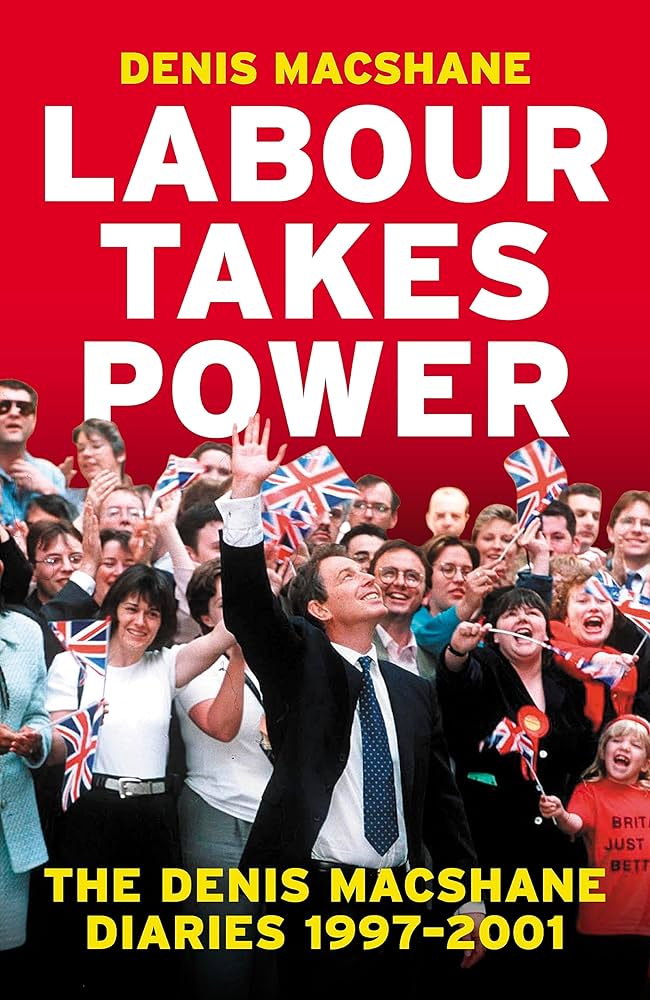
Denis MacShane adds: These diaries show the opening skirmishes over Brexit, though I did not start using the word until 2012 when the financial pages were full of “Grexit” – Greece going back to the drachma from the euro as a result of German chancellor Angela Merkel forcing Brussels to impose financial austerity on the country.
Today the Brexit media attribute to Nigel Farage magical powers to control Britain’s Europe policy. Yet re-reading these diaries it is interesting that Farage does not exist as a serious player. The BBC subsequently propelled Farage to prominence by offering him regular slots on Question Time and Today.
And while Tony Blair was charming Europe with his youth and pro-European speeches on the continent (if not in Britain) he faced relentless briefing from the Gordon Brown camp against any positive approach to the EU.
But already from 1997 onwards the Tories were turning hostile against European partnership. The final decision to hold the referendum was that of a weak prime minister, David Cameron, and was also endorsed by Nick Clegg as the price of staying in the coalition that destroyed the Lib Dems at the 2015 election. I will discuss this in detail in the next volume of my diaries, covering the period when I was minister of Europe.

